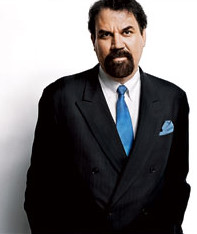The ultimate nightmare for White House/Pentagon designs on Middle East energy resources is not Iran after all: it’s a unified Iraqi resistance, comprising not only Sunnis but also Shi’ites.
“It’s the resistance, stupid” – along with “it’s the oil, stupid”. The intimate connection means there’s no way for Washington to control Iraq’s oil without protecting it with a string of sprawling military “super-bases”.
The ultimate, unspoken taboo of the Iraq tragedy is that the US will never leave Iraq, unless, of course, it is kicked out. And that’s exactly what the makings of a unified Sunni-Shi’ite resistance is set to accomplish.
At this critical juncture, it’s as if the overwhelming majority of Sunnis and Shi’ites are uttering a collective cry of “we’re mad as hell, and we won’t take it anymore”. The US Senate “suggests” that the solution is to break up the country. Blackwater and assorted mercenaries kill Iraqi civilians with impunity. Iraqi oil is being privatized via shady deals – like Hunt Oil with the Kurdistan regional government; Ray Hunt is a close pal of George W Bush.
Political deals in the Green Zone are just a detail in the big picture. On the surface the new configuration spells that the US-supported Shi’ite/Kurdish coalition in power is now challenged by an Iraqi nationalist bloc. This new bloc groups the Sadrists, the (Shi’ite) Fadhila party, all Sunni parties, the partisans of former interim prime minister Iyad Allawi, and the partisans of former prime minister Ibrahim al-Jaafari. This bloc might even summon enough votes to dethrone the current, wobbly Maliki government.
But what’s more important is that a true Iraqi national pact is in the making – coordinated by VicePresident Tariq al-Hashimi, a Sunni, and blessed by Grand Ayatollah Ali al-Sistani himself. The key points of this pact are, no more sectarianism (thus undermining US strategy of divide and rule); no foreign interference (thus no following of US, Iran, or Saudi agendas); no support for al-Qaeda in the Land of the Two Rivers; and the right to armed resistance against the occupation. [complete article]
Shiite leader visits Iraq Sunni province
In a major reconciliatory gesture, a leader from Iraq’s largest Shiite party paid a rare visit Sunday to the Sunni Anbar province, delivering a message of unity to tribal sheiks who have staged a U.S.-backed revolt against al-Qaida militants.
Ammar al-Hakim’s visit was the latest sign that key Iraqi politicians may be working toward reconciliation independently of Prime Minister Nouri al-Maliki’s government, which has faced criticism for doing little to iron out differences between the country’s Shiites, Kurds and Sunnis.
Sunni Arab Vice President Tariq al-Hashemi visited Grand Ayatollah Ali al-Sistani, Iraq’s top Shiite cleric, last month at the holy city of Najaf south of Baghdad. The visit amounted to an unprecedented Sunni Arab endorsement of al-Sistani’s role as the nation’s guardian. [complete article]

 His obvious adversaries are the contracting corporations themselves—especially Halliburton, the giant oil-services conglomerate where Vice President Dick Cheney spent the latter half of the 1990s as C.E.O., and its former subsidiary Kellogg, Brown & Root, now known simply as KBR. But he says his efforts to take on those organizations have earned him another enemy: the United States Department of Justice.
His obvious adversaries are the contracting corporations themselves—especially Halliburton, the giant oil-services conglomerate where Vice President Dick Cheney spent the latter half of the 1990s as C.E.O., and its former subsidiary Kellogg, Brown & Root, now known simply as KBR. But he says his efforts to take on those organizations have earned him another enemy: the United States Department of Justice.